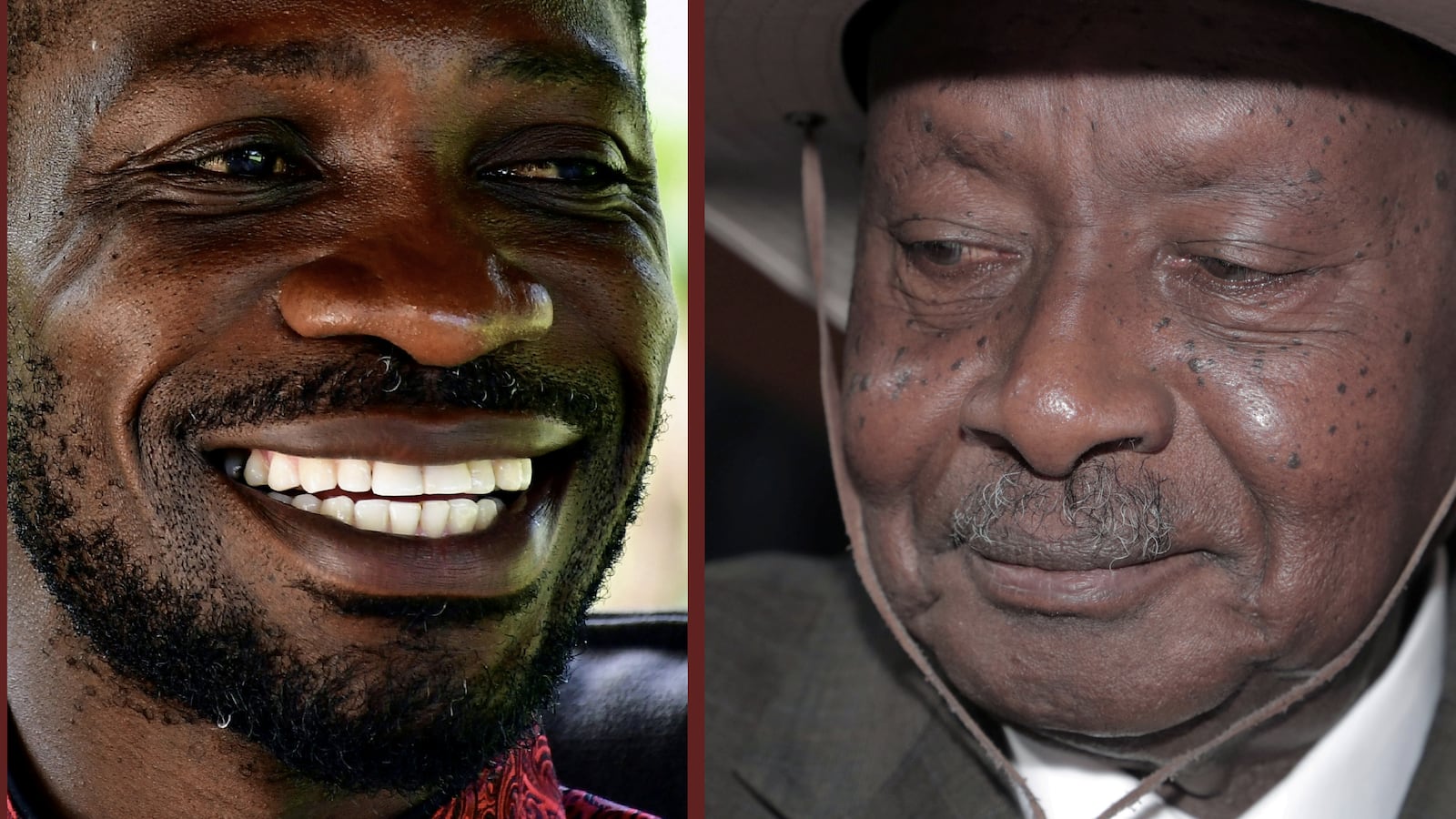President Donald Trump has long insisted that he is being singled out by social media giants while others have exhibited similar behavior. Now he has a dubious ally in the fight against the tech bosses after a slew of Facebook pages linked to the Ugandan government were shuttered ahead of a key presidential election on Thursday, which officials say could change the course of history in that country.
Facebook said it closed the accounts, which included some run by the Ministry of Information and Communications as well as the personal accounts of government officials, because they were part of a network that was working together to target popstar-turned-politician Robert Kyagulanyi Ssentamu, who goes by Bobi Wine.
The 38-year-old opposition leader is closing in on President Yoweri Museveni, who has been in power since 1986. During Museveni’s 35 years in office, the infamous “Kill the Gays” bill upped the penalty for homosexuality from life in prison to death.
After the Facebook and Instagram accounts belonging to Museveni’s senior press secretary Don Wanyama were shut down, Wanyama accused the company of seeking to influence the election. “Shame on the foreign forces that think they can aid and plant a puppet leadership on Uganda by disabling online accounts of (ruling party) NRM supporters,” he wrote on Twitter, which has so far not stifled him. “You wont take away President Kaguta Museveni.”
Speaking from his secluded ranch over the weekend, Museveni said the closure of the accounts amounted to foreign interference and that Wine was an agent of foreign interests promoting homosexuality. “He gets quite a lot of encouragement from foreigners and homosexuals,” he said. “Homosexuals are very happy with Bobi Wine. I think they even send him support.”
Several of Wine’s supporters and aides have been killed or arrested, and he was banned from campaigning and beaten on several occasions under the guise of having broken COVID-19 restrictions. Facebook pages supported by the government have accused Wine of attempting an insurrection. In November, 54 people were killed by security forces after Wine’s supporters rioted after he was taken into custody.
By shuttering the Facebook pages linked to the ministry of information and communications technology, Facebook has raised further questions about when it should intervene to shut down a method of communication to voters. “Given the impending election in Uganda, we moved quickly to investigate and take down this network,” Facebook said in a statement.
A spokesperson for Facebook’s African networks said the pages exhibited Coordinated Inauthentic Behavior, a term Facebook coined that they say takes place when “groups of pages or people work together to mislead others about who they are or what they are doing.”
Facebook said the network included mirror accounts, and false profiles as well as officials’ private accounts and pages operated by the government, all of which were used to amplify certain messages.
“This month, we removed a network of accounts and pages in Uganda that engaged in CIB (Coordinated Inauthentic Behavior) to target public debate ahead of the election,” Facebook’s head of communication for sub-Saharan Africa, Kezia Anim-Addo, said in a statement. “They used fake and duplicate accounts to manage pages, comment on other people’s content, impersonate users, re-share posts in groups to make them appear more popular than they were.”
More than 100 such networks working to manipulate public debate have been removed worldwide since 2017, according to the statement.
In December, Facebook deleted pages managed from Russia and France, including one tied to the French army over accusations that they interfered with operations in Africa. In October, Facebook shut down a conspiracy page run by a political party in New Zealand that was accused of spreading misinformation about COVID-19 ahead of elections there.






